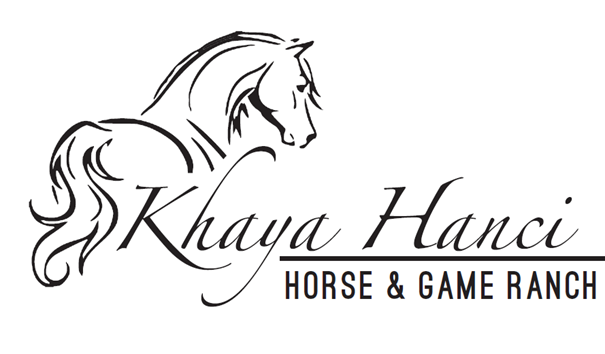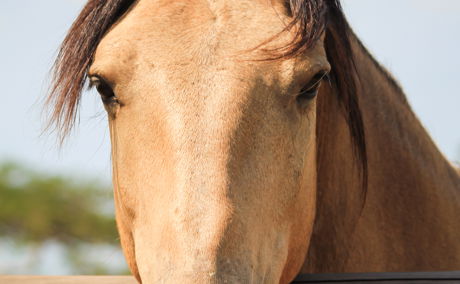A recent study by the University of Arizona, in conjunction with the HeartMath Institute, have uncovered some surprising details about what happens to our hearts when we interact with horses, and the potential benefits to our well-being.
The Equestrian Effect
We ruminate on the valorous partnerships between humans and horses in history, and how these have shaped our sense of humanity.
There is a saying: “The man dignifies the dog, and the dog dignifies the man”.
In the times we inhabit, dogs are family. But dogs have not universally been known as fluffy and affectionate pets. Feral dogs can be vicious scavengers that are an archetype of undisciplined and impulsive living. The dog’s lupine genetic ancestry provides a “wild switch” that can turn sweet Fifi into a brutal, pack-hunting killer that likes nothing more than to tear flesh from bone. Yet, when nurtured, dogs show a unique and extreme capacity for loyalty and unconditional veneration of its owner. And in doing so, the dog that is one meal away from that wild and ferocious state, can still lend a degree of status to the most destitute of people.
The human-canine relationship is a beautiful example of biological and psychological synergy, where a positively reinforcing loop of care and compassion helps to grow and evolve two species. In the case of the destitute, this loop is often the counter-rotation that halts the descent of both man and dog into the spiral of the abyss.
Tagging along with mankind for about as long as the dog has, the horse must also have a profound influence on us. As you, like us, are most probably of the equestrian persuasion, let us examine the qualities that have emerged from this other long-term inter-species collaboration. (And we are certainly not knocking dogs either!)

Throughout history, horses have been the symbolic pedestals of power. Jacques-Louis David’s portrait of a Napoleon crossing the Alps (above) perfectly exemplifies how a noble steed lends imperial gloss to a notoriously diminutive man. The propaganda value of a man on a horse is almost as powerful as it was two centuries ago (although now it helps if the rider is shirtless). Ask political spin doctors and “man” brand brokers anywhere - the visual and psychological icon of the raised and dominant rider is a universal trope for success in conquest, whatever the battlefield. The equine musculature is the extension of a “greater man” that can control and tame, that sees over the heads of others, and that is on his way at a gallop. Coupled with a wholesome outdoorsy vibe, the look is pure Win.
But the horse doesn’t only signify a greater man - it makes one too. What would Alexander have been without Bucephalus? In the heat of battle, was it Al that knew zig from zag, or was it the Big Head making smart tactical decisions? Cities of conquest are named after meritorious generals - for Alexander to name one after his horse, speaks volumes of his opinion. Genghis Khan too, did not jog along the steppe. Were it not for horses, the Golden Horde would have been more of a wild travelling trance party than the infamous “Scourge of God”. Each Mongol warrior took three or more of the most perseverant steppe horses on their campaign. Julius Caesar rode Genitor across the Rubicon and into history. For these, and other remembered men, the horse was not only a logistical technology of war, but a sophisticated and capable ally, worthy of remembrance themselves.
Noting the brawn and brains of these fine creatures, there is the “spirit” that shines. Despite being prey animals that are given to flight, horses have tremendous capacity for courage. Horses will charge into battle, disregarding explosions and all manner of aggression, but also brave treacherous terrain and temperatures in rescue operations. Courage, like love, is a matter of the heart, and the heart of a horse is big in every sense. It stands to reason that a person who is inclined to true greatness would let such largesse rub off on them.
The word “chivalry” beautifully encapsulates this idea. In modern terms, we regard chivalry as positive behaviour that is rooted in respect for the comfort, safety and dignity of others - the stuff of storybook knights. Derived from the Old French word, chevalerie, (meaning “horseman”), the modern French variant means “knight”. The inference is clear that this process of becoming a horseman, and fostering a partnership with the horse, confers high mindedness and discipline. It is quite true that, as there is a correct way to handle the horse respectfully, so there is also a correct way of dealing with people. And as the horse carries my weight, I should also seek to carry the burdens of others. The silent rhythmic lessons are innumerable.
Of course, not every rider will become a knight or emperor. As with the dog, it is the love and respect that the master gives that reflects back through the dog, in a kind of macroscopic entanglement of beings. Likewise, it is the alchemy between the great heart potential of both horse and rider that sets up the magically synergistic and awe inspiring stories that maintain a steady gallop through the pages of history, and that become archetypal parables of positive behaviour for the generations.
The dog may confer dignity. The horse - immortality.
Further Reading
It is true that not everybody will be allowed to ride a member of the Khaya Hanci herd. We are very careful in picking prospective riders - for very good reasons. Read more about our philosophy!
We recently added Khaya Hanci Horse Ranch to our portfolio, only to be presented with a rare white buffalo calf, that we have lovingly named Snowflake. Not only is Snowflake's condition an extreme rarity, but the appearance of such an animal would be regarded as significant in terms of one Native American legend - especially at this time.


Share This Post